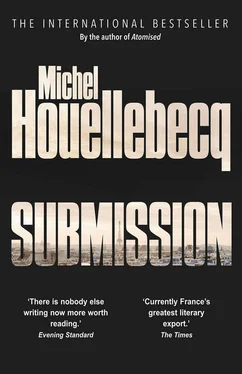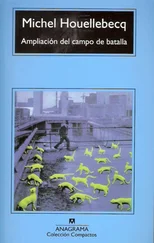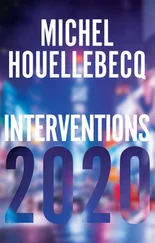It was just after midnight, as I finished my second bottle of Rully, that they announced the final results: Mohammed Ben Abbes, the candidate of the Muslim Brotherhood, had come in second with 22.3 per cent of the vote. With 21.9 per cent, the Socialists were out. Manuel Valls gave a short, very sober speech congratulating the two winners. Pending a meeting of the Socialist leadership, he withheld any endorsement.
When I went in to teach my class, I finally felt that something might happen, that the political system I’d grown up with, which had been showing cracks for so long, might suddenly explode. I don’t know exactly where the feeling came from. Maybe it was the attitude of my postgrad students: even the most apathetic and apolitical looked tense, anxious. They were obviously searching their smartphones and tablets for any news they could find. Or at any rate, they were more checked out than ever. It may also have been the way the girls in burkas carried themselves. They moved slowly and with new confidence, walking down the very middle of the hallway, three by three, as if they were already in charge.
I was equally struck by my colleagues’ lack of concern. They seemed completely unworried, as if none of this had anything to do with them. It only confirmed what I’d always thought — that, for all their education, university professors can’t even imagine political developments having any effect on their careers: they consider themselves untouchable.
At the end of the day, as I turned down rue de Santeuil on my way to the metro, I caught sight of Marie-Françoise. I almost ran to catch up with her, and after a quick hello I asked her straight out: ‘Do you think our colleagues are right to be so calm? Are our jobs really that safe?’
‘Ah!’ she exclaimed, with a gnome-like grimace that did nothing to improve her looks, and lit a Gitane. ‘I was starting to think everyone in the whole fucking place was asleep. Our jobs are certainly not safe, not by a long shot, and I know whereof I speak …’
She considered for a moment, then replied.
‘My husband works at the DGSI.’ I gazed at her in wonder. It was the first time, in all the ten years I’d known her, that I realised she had once been a woman — that she still was a woman, in a sense — and that once upon a time a man had felt desire for this squat, stumpy, almost frog-like little thing. Fortunately, she misread my look. ‘I know,’ she said, with satisfaction. ‘Everyone’s always surprised … You do know what the DGSI is, don’t you?’
‘Intelligence, right? Kind of like the DST?’
‘There is no DST any more. It merged with police intelligence to form the DCRI, which then became the DGSI.’
‘Your husband’s a kind of spy?’
‘Not really, the spies are mainly at the DGSE, in the Ministry of Defence. The DGSI is part of the Ministry of the Interior.’
‘So they’re like secret police?’
She smiled again, this time more discreetly, which was an improvement. ‘They don’t call themselves that, officially — but basically, yes. One of their main jobs is to keep an eye on extremist movements, the ones that could turn terrorist. You should come by the house for a drink, my husband can tell you all about it. At least, he’ll tell you as much as is allowed. I can never keep track of what’s classified. In any case, big changes are in store after the elections, and believe me, they’ll feel them at school.’
They lived in Square Vermenouze, a five-minute walk from the university. Her husband didn’t look anything like my idea of a secret agent (but what had I imagined, after all? Some kind of Corsican, I guess, part gangster, part aperitif distributor). He was a neat, smiling man, with a skull so smooth it looked polished. He wore a tartan smoking jacket, but I could see him in a bow tie at the office, possibly a waistcoat. Everything about him exuded an old-fashioned elegance. From the moment I saw him, I got an impression of nearly abnormal brain power. He was probably the only graduate of the École Normale ever to have passed the entrance exam for the police academy. ‘As soon as I received my commission, I asked to be assigned to police intelligence. It was a calling, you might say,’ he added with a little smile, as if secret operations were a sort of innocent hobby.
He bided his time, taking a first sip of port, then a second, before he continued.
‘The negotiations between the Socialists and the Muslim Brotherhood are much trickier than expected. The Muslims are ready to cede more than half the ministries — even key ministries, like finance and the interior. That’s not the trouble. On the economy and fiscal policy, they and the Socialists see eye to eye. The same goes for security, and what’s more the Muslims can actually bring order to the banlieues. In foreign policy, they want France to take a slightly firmer stance against Israel, but that’s hardly a problem for the left. The real difficulty, the sticking point, is education. Support for education is an old Socialist tradition, and teachers are the one profession that has stood by the party, right to the end; but now the Socialists are dealing with people who care about education even more than they do, and who won’t back down. The Muslim Brotherhood is an unusual party, you know. Many of the usual political issues simply don’t matter to them. To start with, the economy is not their main concern. What they care about is birth rate and education. To them it’s simple — whichever segment of the population has the highest birth rate, and does the best job of transmitting its values, wins. If you control the children, you control the future. So the one area in which they absolutely insist on having their way is the education of children.’
‘But what do they want?’
‘They want every French child to have the option of a Muslim education, at every level of schooling. Now, however you look at it, a Muslim education is very different from a secular one. First off, no co-education. And women would be allowed to study only certain things. What the Muslim Brotherhood really wants is for most women to study Home Economics, once they finish junior school, then get married as soon as possible — with a small minority studying art or literature first. That’s their vision of an ideal society. Also, every teacher would have to be Muslim. No exceptions. Schools would observe Muslim dietary laws and the five daily prayers; above all, the curriculum itself would have to reflect the teachings of the Koran.’
‘You think the Socialists will give in?’
‘They haven’t got much choice. If they don’t reach an agreement, they don’t stand a chance against the National Front. Even if they do reach an agreement, the National Front could still win. You’ve seen the polls. Suppose Copé refuses to vote for either party, even so, eighty-five per cent of the centre right will vote National Front. It’s going to be close, extremely close — fifty — fifty, really.
‘So their only chance is to adopt a two-tier education system. They’ll probably model it on the polygamy agreement, which will maintain civil marriage as a union between two people, men or women, but will also recognise Muslim marriage — and ultimately polygamy — even though it isn’t administered by the state, and will come with the same benefits and tax exemptions.’
‘Are you sure? That sounds so drastic …’
‘Quite sure. It’s all been settled. And it is exactly in line with the theory of minority sharia, which the Muslim Brotherhood has always embraced. So they could do something similar with education. Public education would still be available to everyone — though with vastly reduced funding. The national budget would be slashed by two-thirds at least, and this time the teachers wouldn’t be able to stop it. In the current economic climate, any budget cut is bound to play well at the polls. At the same time we’d have a parallel system of Muslim charter schools. They’d have all the same accreditations as the state schools — with the difference that they could receive private funding. Obviously, the state schools would soon become second class. Parents who cared at all about their children’s future would sign them up for a Muslim education.’
Читать дальше







